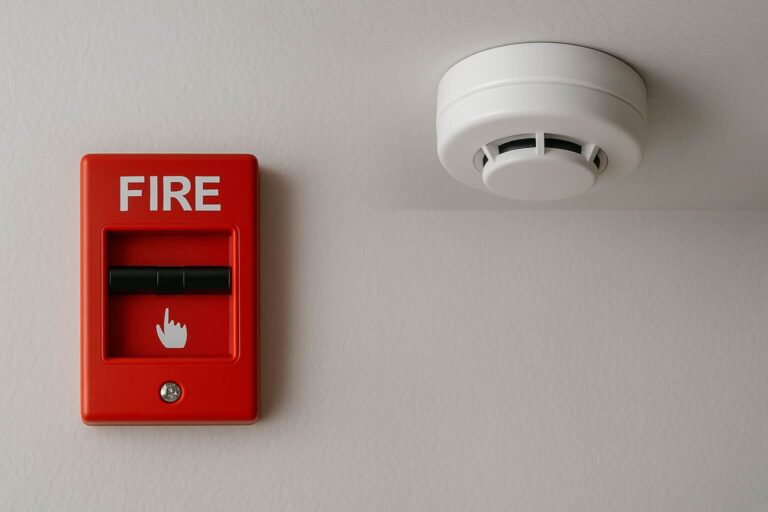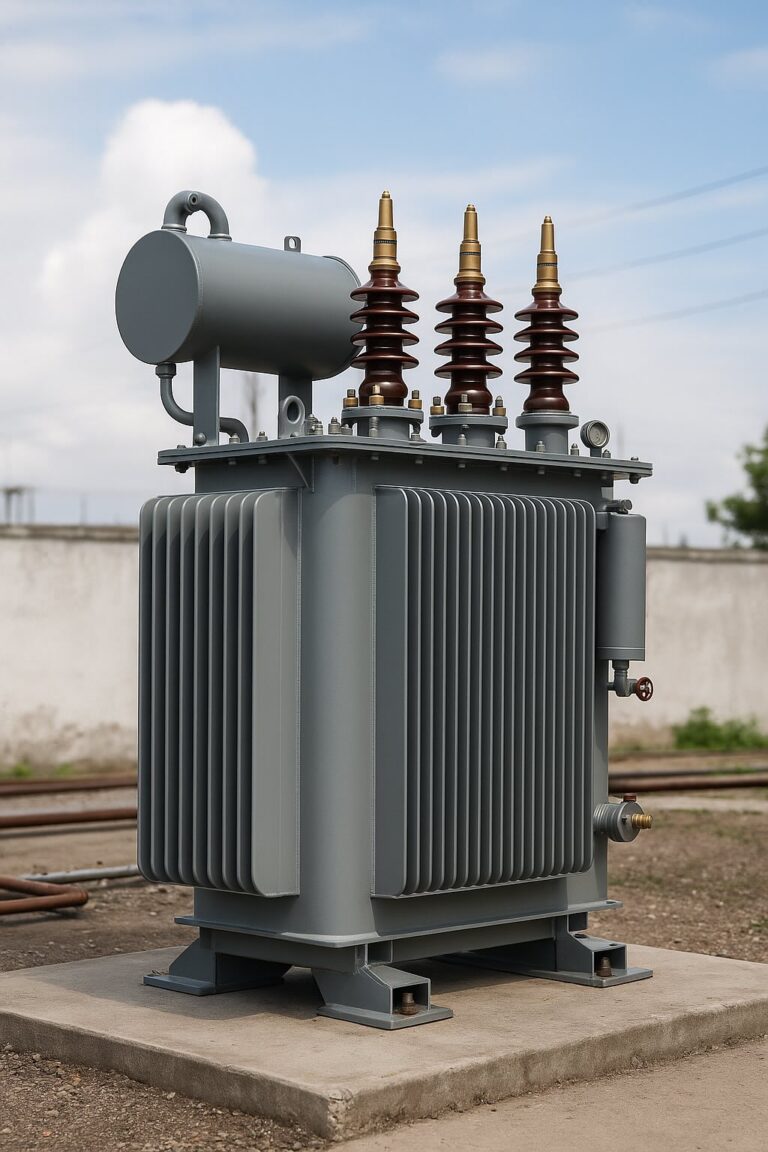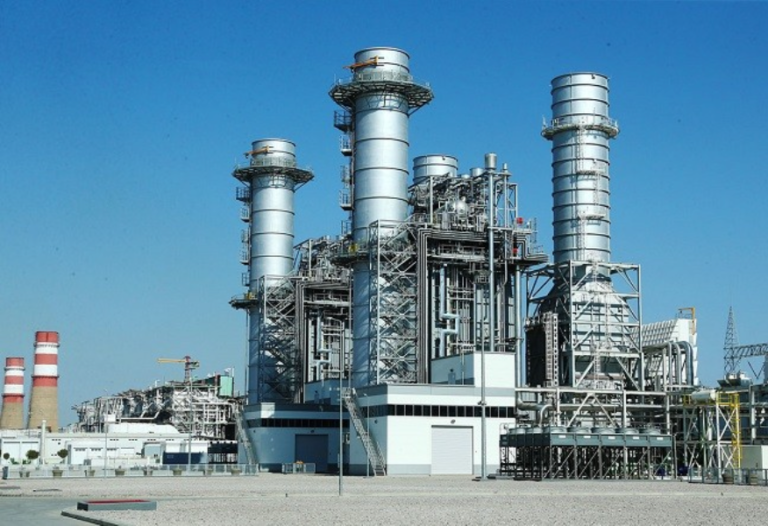What Are Fire Detection Systems? How Do They Work?
Fire detection systems are vital safety solutions that help detect signs of fire at an early stage in buildings and...
Devamını Oku

EPC, which stands for Engineering, Procurement and Construction, is a comprehensive project delivery model where a single contractor is responsible for the design, procurement of materials, and the construction of a facility or infrastructure project. This turnkey approach ensures that the client receives a completed, operational project without managing multiple contractors or vendors. EPC services are commonly used in large-scale industries such as oil and gas, power plants, water treatment, and industrial manufacturing due to their efficiency and integrated structure.
When someone asks what is an EPC company, the answer lies in its all-encompassing responsibilities: from initial design to final implementation. An EPC company takes on the full accountability for the project’s scope, cost, and schedule. This model minimizes the client’s risk and streamlines communication. Therefore, what does EPC firm mean becomes clear — it means a firm that delivers a full-scope project from start to finish, often referred to as a one-stop solution provider. With clear deliverables and timeline commitments, EPC is a highly preferred model for complex infrastructure development.
EPC contracts are structured agreements that place full responsibility on a single contractor to deliver a fully operational facility. These contracts are most often used in complex, high-investment industries such as energy, petrochemicals, and large-scale infrastructure. One of the key characteristics of an EPC contract is that it is typically fixed-price and time-bound, meaning the contractor commits to delivering the project within a set budget and deadline. This arrangement significantly reduces the client’s exposure to risk and provides more certainty in project execution. Clients prefer this model because it ensures accountability and simplifies communication through a single point of contact.
Another major characteristic is the performance-based approach of EPC contracts. The contractor must meet specified performance benchmarks, including efficiency, safety, and compliance with technical standards. The contract usually includes clear guidelines on penalties for delays, non-performance, or cost overruns. In essence, what is EPC service can be defined through these agreements — it’s a service model where the provider handles everything, from start to delivery. The clarity of roles and streamlined structure make EPC contracts especially effective in managing large, multidisciplinary projects where coordination and precision are critical. These qualities are central to understanding what EPC services entail.
The EPC process is a structured workflow divided into three main phases: engineering, procurement, and construction. Each of these stages is critical and sequential, ensuring that the project progresses efficiently from concept to completion. The process begins with the engineering phase, where detailed plans, technical drawings, and specifications are developed. This is followed by procurement, where all materials, equipment, and services required for the project are sourced, ordered, and delivered. Finally, the construction phase turns the plan into reality through site work, installation, and commissioning. Each stage demands expert coordination and planning to avoid delays or cost overruns.
This process model is what defines epc services and distinguishes EPC companies from other project delivery models. The single-point responsibility throughout all stages ensures consistency, quality control, and adherence to deadlines. Clients are not required to manage multiple vendors or contractors, which drastically reduces administrative workload. In the context of what is EPC company, this approach encapsulates its core value — a fully integrated solution from design to delivery. Understanding these stages also provides clear insight into what EPC services include, highlighting the end-to-end nature of this delivery method.
The engineering phase is the foundation of the EPC process, involving detailed project planning, technical design, and feasibility assessments. During this stage, EPC companies develop engineering drawings, simulations, and technical calculations that define every aspect of the project. It includes civil, mechanical, and electrical engineering disciplines depending on the project scope. Accuracy and foresight during engineering are crucial because errors at this stage can lead to major delays and cost increases later.
This is where the role of an EPC company truly begins to stand out. Their expertise ensures that all project components align with industry standards and client requirements. The engineering stage also sets the tone for procurement and construction, making it the backbone of what defines what does EPC firm mean in practical terms — a firm that transforms complex ideas into executable, efficient plans.
Procurement is the phase where all the materials, systems, and services specified in the engineering stage are sourced and acquired. EPC companies are responsible for identifying qualified suppliers, negotiating contracts, managing logistics, and ensuring timely delivery to the construction site. Effective procurement is vital for keeping the project on schedule and within budget. Delays or mistakes in procurement can impact every downstream activity, making this stage a critical component of the overall success.
In this stage, epc services demonstrate their full value by managing global supply chains, quality control inspections, and just-in-time deliveries. This centralized procurement approach is part of what EPC services include, offering clients the benefit of streamlined operations and minimized procurement risk. It’s a core part of how EPC firms add efficiency and reliability to large-scale projects.
The construction phase is where the project physically takes shape on-site. This stage includes civil works, equipment installation, electrical wiring, structural assembly, and ultimately, system integration and commissioning. EPC companies coordinate every element of construction, including workforce management, safety compliance, scheduling, and quality assurance. The success of this phase relies heavily on the accuracy of the engineering design and the efficiency of the procurement process.
This stage reflects the true scope of what is EPC service, where the provider is responsible for delivering a fully functional and operational facility. By managing construction directly, the EPC company ensures that the project meets all predefined performance and quality standards. This is also a practical demonstration of what does EPC firm mean — a partner who takes full responsibility until the final handover.
Adatech is one of the leading companies making a difference in the field of EPC (Engineering, Procurement and Construction) services with its solid infrastructure, experienced expert staff and innovative approach in engineering and industrial projects. The company offers a wide range of services from medium and low voltage systems to advanced automation solutions, from fire safety and weak current infrastructure to comprehensive mechanical applications. Adatech takes an active role in all stages of the EPC process and manages the engineering design, material supply and installation of the projects in an integrated structure from a single source. In this way, it provides significant advantages to its customers in terms of time, cost and quality. Producing reliable and sustainable solutions in accordance with international standards in its projects has made Adatech a preferred and trusted business partner in the sector.
Adatech, which has carried out successful projects in many critical industrial fields, especially in the petrochemical sector, approaches each project with a passion for engineering. Positioning creativity, quality and sustainability among its core values, Adatech develops solutions that can meet not only today’s needs but also the needs of the future. Adatech, which is actively involved in all EPC steps from the design phase to field installation, system integration and commissioning, offers customized solutions to the expectations of its customers thanks to its technology and people-oriented approach. This flexible and solution-oriented service approach further reinforces Adatech’s pioneering and inspiring position in the sector.
EPC services offer a wide range of advantages for investors and project owners seeking efficient, reliable, and cost-effective project delivery. The most notable benefit is the single point of responsibility: clients only deal with one contractor for the entire process — from design and procurement to construction and commissioning. This drastically reduces the complexity of communication and coordination across multiple vendors, minimizing delays and errors. For anyone asking what is EPC service, the answer lies in this unified control that ensures streamlined progress and accountability throughout the project lifecycle.
Another major benefit is risk mitigation. Since EPC contractors typically work under fixed-price and fixed-schedule contracts, the financial and timeline risks are transferred from the client to the contractor. Additionally, EPC services lead to better cost control, higher quality assurance, and quicker delivery times. The model enhances project transparency, enforces compliance with safety and environmental standards, and reduces administrative workload. Ultimately, understanding what does EPC firm mean or what is EPC company becomes clear when you look at the outcome: a turnkey project delivered with technical precision and minimal disruption to the client. These advantages make EPC the preferred choice for high-stakes, large-scale industrial developments.

Fire detection systems are vital safety solutions that help detect signs of fire at an early stage in buildings and...
Devamını Oku
An oil-filled transformer is a type of electrical transformer that uses insulating oil as both a cooling and insulating medium....
Devamını Oku
PRMS (Pressure Reduction and Metering Stations) are critical components of natural gas infrastructure, ensuring the safe and efficient delivery of...
Devamını OkuPROTECTION OF PERSONAL DATA
WEBSITE COOKIE POLICY
Your personal data; It is one of the leading principles of our Organization to protect the privacy of visitors to the website (www.adatech.com.tr) operated by ADATECH as the data controller. This Cookie Usage Policy (“Policy”) explains to all our website visitors and users which types of cookies are used and under what conditions.
Cookies are small text files stored on your device or network server by websites you visit on your computer or mobile device.
They are generally used to provide you with a personalized experience during your use of the website you visit, to improve the services offered and to improve your experience, and may contribute to ease of use while browsing a website. If you do not prefer the use of Cookies, you can delete or block Cookies in your browser settings. However, we would like to remind you that this may affect your use of our website. Unless you change your cookie settings in your browser, we will assume that you accept the use of cookies on this website.
1. WHAT KIND OF DATA IS PROCESSED IN COOKIES?
Cookies on websites, depending on their type, collect data about your browsing and usage preferences on the device you visit the site. This data includes information about the pages you access, the services and products you review, your preferred language option and other preferences.
2. WHAT is a solution and what are its intended uses?
Cookies are small text files that are stored on your device or network server through browsers by websites you visit. These small text files, which contain your preferred language and other settings on the site, help us remember your preferences the next time you visit the site and make improvements to our services to improve your experience on the site. Thus, you can have a better and personalized usage experience on your next visit.
The main purposes of using cookies on our Website are listed below:
3.TYPES OF COOKIES USED ON OUR WEBSITE
3.1. Oturum Çerezleri
Session cookies ensure that the website functions properly during your visit. They are used for purposes such as ensuring the security and continuity of our sites and you during your visit. Session cookies are temporary cookies, they are deleted when you close your browser and come to our site again, they are not permanent.
3.2. Persistent Cookies
These types of cookies are used to remember your preferences and are stored on your device via browsers. Persistent cookies remain stored even after you close your browser or restart your computer from which you visited our site. These cookies are kept in subfolders of your browser until they are deleted through your browser’s settings.
Some types of persistent cookies may be used to provide you with special suggestions, taking into account issues such as your purpose of using the Website.
Thanks to persistent cookies, if you visit our Website again with the same device, it is checked whether there is a cookie created by our Website on your device and if there is, it is understood that you have visited the site before and the content to be transmitted to you is determined accordingly and thus a better service is provided to you.
3.3. Mandatory/Technical Cookies
These cookies are essential for the website you visit to function properly. The purpose of such cookies is to provide necessary services by enabling the website to function. For example, it allows you to access secure parts of the website, to use its features, to navigate on it.
3.4. Analytical Cookies
They collect information about the way the website is used, the frequency and number of visits, and show how visitors navigate to the site. The purpose of using such cookies is to increase performance by improving the way the site functions and to determine the general trend direction. They do not contain data that could enable the identification of visitors. For example, they show the number of error messages displayed or the most visited pages.
3.5. Functional/Functional Cookies
It saves the choices made by the visitor within the site and remembers them on the next visit. The purpose of such cookies is to provide ease of use to visitors. For example, it prevents the site user from re-entering the user password on each page they visit.
3.6. Targeting/Advertising Cookies
They enable the measurement of the effectiveness of advertisements served to visitors and the calculation of the number of times the advertisements are viewed. The purpose of such cookies is to serve ads customized to the interests of visitors.
Likewise, they enable the detection of visitors’ interests specific to their browsing and the presentation of appropriate content. For example, it prevents the advertisement shown to the visitor from being shown again in a short time.
4. HOW TO MANAGE COOKIE PREFERENCES?
To change your preferences regarding the use of cookies or to block or delete cookies, simply change your browser settings.
Many browsers give you the option to accept or reject cookies, accept only certain types of cookies, or be alerted by the browser when a website requests to store cookies on your device so that you can control cookies.
It is also possible to delete cookies previously saved in your browser.
If you disable or refuse cookies, you may need to set some preferences manually, some features and services on the website may not function properly as we will not be able to recognize and associate your account. You can change the settings of your browser by clicking on the relevant link from the table below.
5. ENFORCEMENT OF WEBSITE PRIVACY POLICY
Website Privacy Policy …./…./…./…. . is dated. In case all or certain articles of the Policy are renewed, the effective date of the Policy will be updated. The Privacy Policy is published on the website of the Authority (www.adatech.com.tr) and made available to the relevant persons upon the request of the personal data owners.
ADATECH
Address: Esenyalı Neighborhood Yanyol Street Varyap Plaza No:61-148 Pendik / Istanbul
Telephone: +90 (216 ) 514 80 69
E-mail: info@adatech.com.tr
Web Address: www.adatech.com.tr